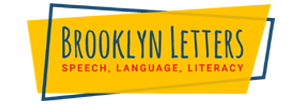What to Do and Not to Do When Teaching Self-Control to Young Children

Young children have a tough time dealing with negative emotions and impulsivity. Self-control and regulation are essential skills to instill in early childhood, as a lack of self-control can have long-term consequences. When children cannot exhibit self-control, they are more vulnerable to negative emotional consequences. As a result, their long-term happiness suffers. When teaching self-control to young children, it is critical to understand that it is a difficult notion to instill in young children. Teaching children the value of self-control takes not just patience but also tenacity and consistency in your approach.
How to Teach Self-Control to Young Children
Teaching self-control or emotional self-regulation enables a kid to notice and manage their emotions, which is a crucial ability to maintain the focus and attention that learning requires. Adequate understanding of one’s emotional states makes it simpler to grasp the ideas, feelings, and viewpoints of others. It allows young children to relate better to their peers and adjust more easily to social subtleties at school.
Below, we list some common do’s and don’ts for parents when teaching self-control to young children.
DO help your child understand that actions have consequences.
Children who lack self-control often make decisions in the heat of the moment. Understanding how their actions affect others is an important element when teaching self-control to young children. However, it’s crucial to ensure that this is done reasonably and kindly. Instead of using threats or getting angry at a child who refuses to get ready in the morning, a parent must explain that not doing so will cause everyone to be late for class and work.
DO give your child realistic options.
When presented with choices, a child will not always be inclined to pick either one. After all, a child engrossed in playing a video game with his friends will not likely be thrilled to stop and work on their assignments. Offer them options or leeway instead of giving ultimatums or a stern yes or no answer to their questions. This way, they feel like they have some say in the matter.
If children can exert some influence over what is going on, they will feel more secure about their choices. It’s crucial to get your child involved in the decision-making process when teaching self-control. For example, you can offer to let them pick what you’re having for dinner once they finish their homework. In doing so, you let your children exercise some influence over the circumstance and take responsibility.
DO use games and imaginative play to practice self-control.
Simple games like red light/green light, Simon Says, and freeze tag are good for teaching toddlers about pausing and considering their next move. Likewise, children can take on imaginary roles and explore power themes during pretend play. Pretend play stimulates and challenges youngsters to think imaginatively, explore their thoughts, and perhaps even show some vulnerability. Assign different roles to your children, negotiate through tough circumstances, and decide on the rules together. All these help young children learn many facets of self-regulation.

DO practice what you preach.
Explain self-control and give instances of times when you’ve demonstrated it. Discuss how it influenced your ability to be a better parent or coworker. Then, ask your children to tell you about a time when they exercised self-control. Most importantly, it’s crucial that you model the behavior you want your children to follow. By practicing what you preach, your children will witness how you display self-control and understand how much you value it.
DON’T lose your cool.
This may be easier said than done, as we all know how stressful parenting can be. But when teaching self-control to young children, losing your temper in high-stress situations is counterproductive. If your child is on the verge of throwing another fit, gently tell him or her to think of a method to stay calm and make sensible decisions. Even when your child is in the middle of a huge tantrum, you must remind yourself that positive discipline requires you to be kind, understanding, and gentle.
DON’T criticize your child’s failures or mistakes.
By being cautious with our criticism, we can help children develop resilience and determination. Studies suggest that praising children for general characteristics (“You’re incredibly brilliant!”) causes them to develop an incorrect mentality. General criticism (“I’m disappointed in you”) also falls into this category. What works best is praise for effort and feedback that motivates children to attempt new things. Likewise, you can call attention to mistakes or misbehavior constructively. Instead of saying that their behavior is disappointing, ask your child how the situation made them feel and what they would have done differently.
DO let your child relax.
Children benefit from downtime. According to studies, people do not keep the same levels of self-control throughout the day. The “morning morality effect” suggests that self-control is a finite resource. It depletes as we go about our day and constantly encounter situations wherein we must curb desires or emotional outbursts. And according to experts, one way to replenish it is through relaxation. This is even more important when teaching self-control to young children whose ability to self-regulate is still in development.
Chat with Us Today! We are ready to help you right now!
FREE CONSULTATION!!!
Call: (347) -394-3485, Text: (917) 426-8880
Email: [email protected]
(We respond to email right away!)
Craig Selinger
Latest posts by Craig Selinger (see all)
- Private-Pay NYC SETSS: Special Education Teacher Support Services - June 29, 2022
- 7 Do’s and Dont’s of Teaching Self-Control to Young Children - June 11, 2022
- 8 Tips to Help Parents Practice Positive Parenting - June 11, 2022
